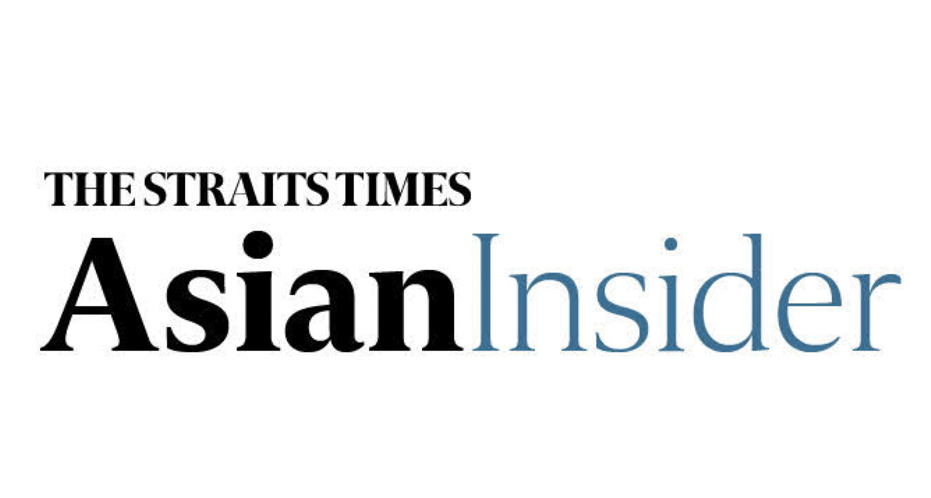Driving commercial and political engagement between Asia, the Middle East and Europe
Driving commercial and political engagement between Asia, the Middle East and Europe
Driving commercial and political engagement between Asia, the Middle East and Europe

27 November 2019
In today’s bulletin: Will the current lull in violence in Hong Kong mark the start of a more peaceful phase?; Japanese authorities give the greenlight for a nuclear reactor near Fukushima to be restarted; high drama in Maharashtra, the home of Bollywood; and more…
A PERIOD OF RELATIVE CALM IN HONG KONG

Today was one of those days in Hong Kong that have become increasingly rare: One without reports of chaos or violence. Instead, today was all about a slow return normality. A final sweep of Hong Kong’s Polytechnic University turned up no further encamped protesters, suggesting that a two-week long stand-off at the campus is over. PolyU was the last of the five universities occupied by protesters to be cleared out. Separately, the Cross-Harbour Tunnel – which was blocked by protesters as part of their stand in PolyU – was also reopened today. Authorities are hoping that the current lull in violence, in tandem with the outlet that the weekend district council elections provided – might lower the overall intensity of unrests.
What you need to know about Hong Kong today:
Hong Kong university siege winds down as hunt for protesters comes up empty
Hong Kong authorities appeal for calm as Cross-Harbour Tunnel reopens
Pompeo warns China to honour ‘human rights standards’ in Hong Kong
In pictures: Search team enters Hong Kong Polytechnic University to look for protesters
JAPAN ON THE WAY TO RESTARTING FUKUSHIMA NUCLEAR REACTOR

Japanese regulators have given approval to Tohoku Electric Power to restart the reactor at the Onagawa power plant, the nuclear station closest to the epicentre of March 11 earthquake and tsunami that killed nearly 20,000. Further approval, from local authorities for instance, would be required before it is turned back on. Still, the latest development is a sign of Japan slowly coming back to terms with nuclear power. All 54 operational reactors were shut down after the Fukushima disaster that caused several reactors to melt down. So far, nine reactors have been restarted. There is some way to go to win back public trust, however. Earlier this week, a visiting Pope Francis said nuclear energy should not be used until there are ironclad safeguards.
See also: Pope Francis urges fresh efforts for Fukushima victims
IT’S NOT A MOVIE: HIGH POLITICAL DRAMA IN BOLLYWOOD

A disclaimer before we get to this one. As one of my colleagues in India noted: “Even us Indians are having trouble understanding what’s going on”. The backdrop of this drama is the western state of Maharashtra – known as the home of India’s financial capital Mumbai and movie-making machine, Bollywood.Mumbai and its film capital, Bollywood. At the heart of it is a struggle for control of the state government where no party emerged with an outright majority during state elections last month. That struggle has included a nephew backstabbing his uncle, alliances between former rivals and a chief minister swearing-in only to promptly resign.
India Bureau Chief Nirmala Ganapathy takes us through the twists and turns here: Indians gripped by political drama in the country’s richest state and home to Bollywood
SOUTH KOREA TO BREAK AN UNWANTED RECORD

Last year, South Korea broke the record for lowest fertility rate with just 0.98 babies born per woman. A rate of 2.1 is required for a population to replace itself from one generation to the next without migration and South Korea came up well short. This year, it is going to blast through its own dismal record. The national statistics office is estimating that 2019 will see a total fertility rate of 0.88. The government has spent billions trying to reverse this long-running trend and is also having to now plan for an ageing society. Next year, it also intends to raise the bar needed for citizens to get exemptions from compulsory national military service to try and maintain the ranks of its armed forces.
See also: South Korea to ease standards for conscription as birth rates plunge
SINGAPORE MOVES TO SECURE PUBLIC DATA

Following an exercise that began after a spate of data breaches in public institutions, the Singapore government is today announcing a slew of measures it intends to roll out to better protect the data it collects from the public. These included proposals to limit the amount of data collected and how long it is kept as well as setting up a single point of contact to report government data incidents. The exercise is an ambitious and necessary one, though there will likely need to be some fine-tuning of the broad proposals given the different needs of different agencies.
The details: All govt agencies to take steps to safeguard personal data; measures to be in place in most systems by end-2021
IN OTHER NEWS

Thanksgiving weather: A cluster of powerful storms is set to disrupt Thanksgiving holiday travel for the Western US, with heavy snow cancelling flights in Denver and a higher risk of mudslides in parts of California.
What Trump knew when: US President Donald Trump had already been briefed on a whistle-blower’s complaint about his dealings with Ukraine when he unfroze military aid for the country in September, according to two people familiar with the matter.
Michelin snub: Sukiyabashi Jiro, a famed Tokyo sushi restaurant where Barack Obama is said to have enjoyed the best sushi of his life has been dropped from the latest Michelin gourmet guide after it stopped accepting reservations from the public.
These insights are produced by The Straits Times, the official media partner for the Asia House Global Trade Dialogue, which took place in Singapore on 7 November 2019.
Reading this on the web or know someone who might enjoy receiving Asian Insider? The sign-up page is here
